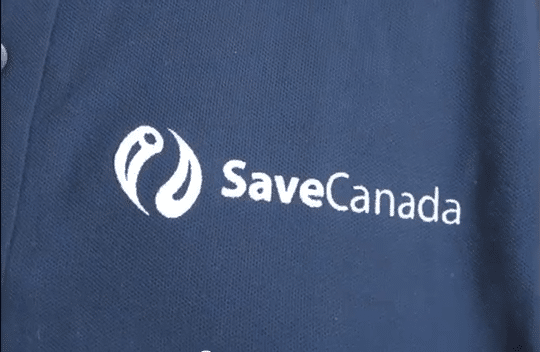As their proposed Keystone XL pipeline faces ever-increasing opposition – and as the State Department continues to push back official decisions on whether to approve the pipeline’s permit – TransCanada has turned at least some of their attention east. The Canadian company has proposed and is now seeking permission to build out their so-called Energy East pipeline system (which DeSmogBlog has covered here), which would funnel tar sands crude from Hardisty, Alberta to refineries in Saint John, New Brunswick, on a point of land jutting out into the Bay of Fundy. The project would involve converting roughly 1,864 miles of natural gas to handle diluted bitumen and constructing roughly 870 miles of new pipeline from the Ontario-Quebec border to the coastal refinery. In all, Energy East would travel over 2,700 miles across Canada, through hundreds of cities and townships and across hundreds of rivers and streams.
To sell the Energy East vision to the communties that could potential be affected by a Kalamazoo or Mayflower-type of spill, TransCanada has foregone the “town hall” model – where concerned citizens or community activists can take the floor to raise concerns – instead opting for an open house, “trade show” model of community meeting, where TransCanada reps take their talking points and shiny PR materials directly to attendees in one-on-one settings.
Enter: SaveCanada.
Some residents along the proposed Energy East path had attended a meeting in this new format and had been frustrated with what they described as “a new tactic to silence opposition.” The North Bay, Ontario activists were more prepared for the next meeting.
In their words: “Mixed in amongst the crowd of several hundred who dropped by throughout the evening, a group of 50 concerned citizens came with more than just their questions; they came in outfits that intentionally resembled TransCanada’s own. Their shirts were branded “SaveCanada” with a strikingly similar logo to TransCanada’s and at many points in the evening they outnumbered the plethora of company employees on the floor. The group had grave concerns about the implications of this pipeline conversion project but also about the format of the community consultation itself.”
One spokesperson for SaveCanada explained, “This open house format doesn’t allow for actual community consultation, even though that is what they are required to do. So we had our presence, and the real information, but mostly were encouraging folks to have their concerns be recorded so that they may make their way to TransCanada’s National Energy Board application.”
This video tells the whole story:
The group is encouraing others along the Energy East route to represent SaveCanada at TransCanada’s upcoming community meetings, which are happening almost daily for the next few weeks. For more details about how to form your own SaveCanada team, and for a list of upcoming meetings, check out their website.
Subscribe to our newsletter
Stay up to date with DeSmog news and alerts







